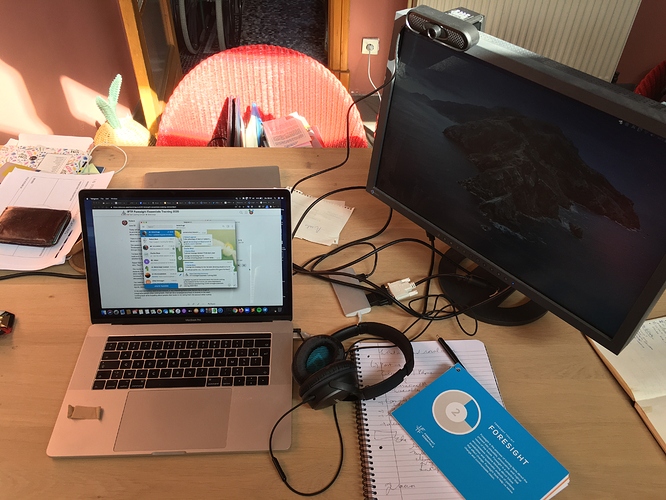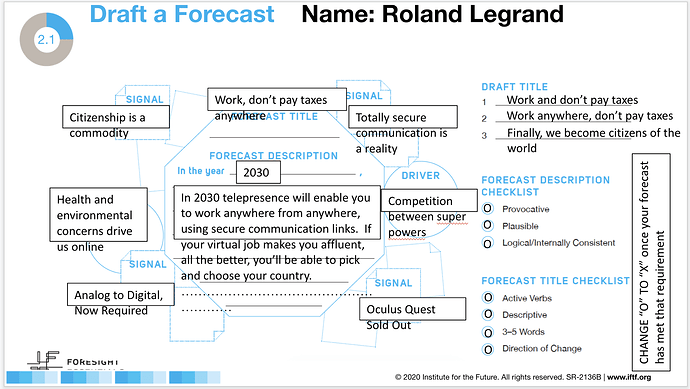Hi, I’ll use this space to take notes about how and what we learn at the Foresight Essentials Training at the Institute for the Future. About 28 participants take part, the course is not free. Previously I took part in a Coursera specialization (facilitated by Jane McGonigal, IFTF).
June 23
Today will be the first session, starting at 9 am Pacific (so evening for me in Europe). IFTF uses Google to provide us with tons of learning materials. We had to do a pre-session assignment (providing signals about the future of communication) and we used Google Forms for that.
There is a list of participants in a Google spreadsheet, we add our LinkedIn profiles and some details about our interests. There is also a folder for pictures.
The sessions will take place in Zoom, and it seems we’ll use a lot of break-outs. A Facilitator & Timekeeper will make sure everyone’s voice is heard in the allotted time, she will guide conversation through the prompts. A Notetaker will capture highlights (also on Google Docs).
I’ve been thinking about how I will use my personal learning network to capture what I learn and to build on it. I guess I’ll use Roam Research, Twitter, Discourse, Diigo and Mindmeister. Still in doubt whether to subscribe to Miro.
Robert Best will be delighted to hear that during today’s session we used the online whiteboard tool Miro. The IFTF-guys do like that tool a lot.
The course is heavily structured by slides and well-prepared interventions enabling interaction by the students. For instance, we got a closed envelope with a quote, and then you had to read it out loud, one other member had that same quote and she or he was then to be your buddy with whom you make your homework. The break-outs were focused on specific tools or exercises such as finding signals and discussing how and where people found these signals.
The Institute has a large database of signals, these signals are tagged and I think there are also discussion threads. Members of the partner programs (such as aerospace companies) also add to the signals database.
In the exercise looking back to look forward, a very interesting theme was that we risk to forget or marginalize people when looking back. That can be a consequence of lack of diversity in the team. Looking back while forgetting about people often leads to not taking them into account while looking forward.
I finally installed a second screen and camera for my “home office”. Work and study are completely online these days.
This is a forecasting exercise. It’s not about making predictions, but about developing a possible future scenario based on current day facts.
So Forecasting is part of Foresight, the making of plausible, coherent scenarios based on signals we can observe today. These scenarios are like worlds on themselves, they are no predictions. What is useful however, is to make provocative. Foresight is one of four phases of the investigation: in Prepare we collect drivers and signals, in Foresight we make scenarios leading to Insights when we start seeing implications and choices we have te make and finally Action is about acting on those Insights.
The main advantage of the Insight Essentials training are the contacts with the co-learners and the application of the tools on many use-cases which are brought up by the participants. It allows you to get some confidence in applying the tools. One learns to appreciate the power and the limits of specific tools.
it’s also about ethics. For instance, in the exercise ‘look back to look forward’, there is a risk of forgetting about the victims of change, the marginalized. Doing so will lead to forgetting them once again in your future plans.
We’ll try to have an ongoing community of practitioners, right now we have a Slack and a WhatsApp group.


